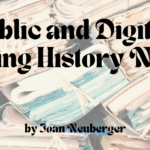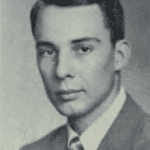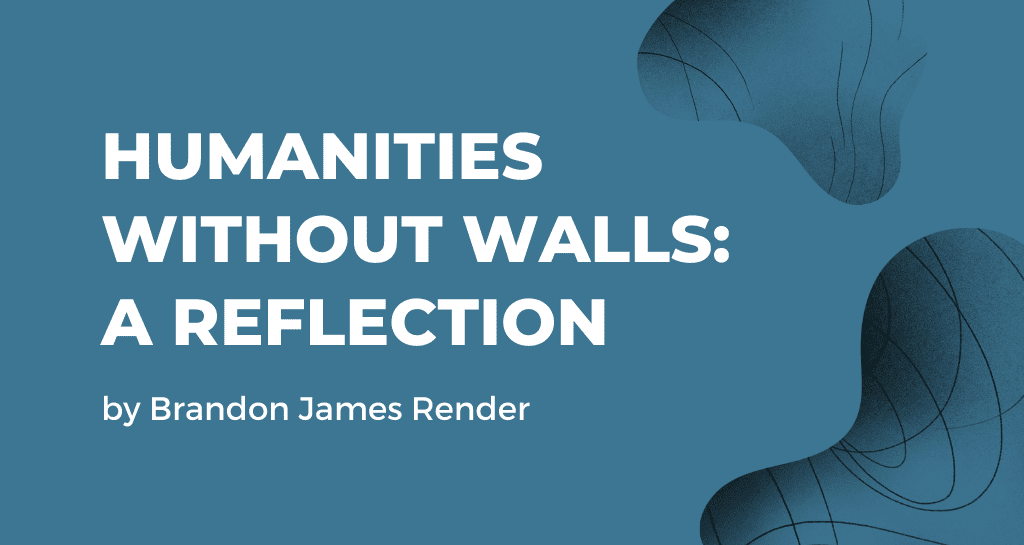
This summer, I attended the Humanities Without Walls Pre-Doctoral Summer Fellowship Workshop – a three-week series of events and speakers that aims to connect graduate students to professionals with a background in the humanities. I’ve attended dozens of career diversity panels, workshops, and seminars, but I found the Humanities Without Walls workshop to be the most unique – and beneficial – approach to exploring professional opportunities.
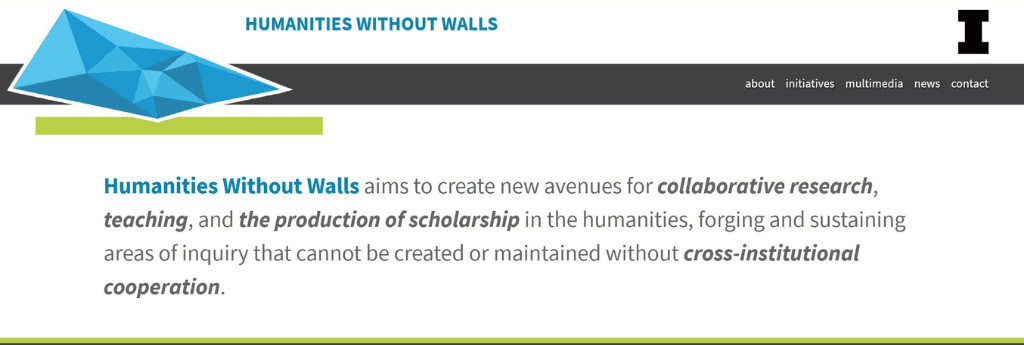
When I entered the PhD program in History at the University of Texas in 2017, I took an open-minded approach to post-graduate school career options. During the application process, mentors and former professors continually reminded me that the odds of landing a tenure-track job are not favorable. In my application, I stated that I would like to prioritize career paths that fit my skills and experience developed through graduate training, whether that was a tenure-track job or a non-faculty position. Throughout my graduate training, I’ve had several opportunities to engage with professionals with a PhD in a humanities field, and I’m excited about the variety of options within the expanded job market.
Despite these opportunities, I’ve continued to have reservations about pursuing a career outside of the traditional tenure-track profession. These concerns range from the practical to the abstract. How do I translate my curriculum vitae into a résumé? What does a cover letter based on educational experience look like? Many employers may not understand the process of earning a PhD – how do I communicate that my graduate training is work experience? And how do I find a career that supports my values as a humanist scholar? Although I’m confident in my skills and professionalization, I’m also concerned about how to connect my qualifications to potential employers unaware of the abilities I’ve developed throughout my graduate training.
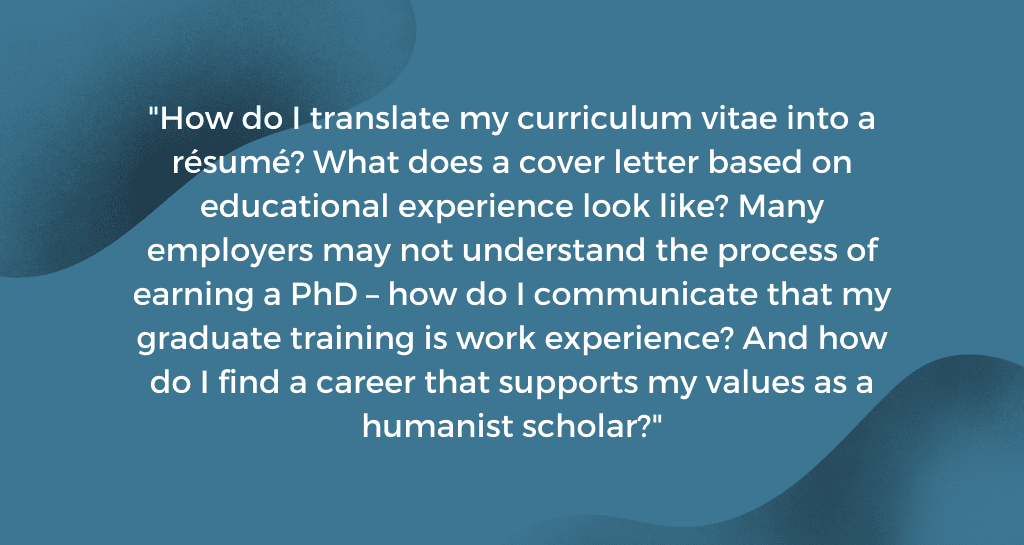
After working with the Humanities Without Walls consortium and attending their Doctoral Summer Fellowship Workshop, I feel more comfortable about career opportunities and balancing my professional life with personal goals and values. With thirty other fellows, I learned about career paths in consulting, non-profit, tech, and research professions that employ humanities training. In small groups, we held reflection sessions to discuss how our interests evolved throughout the workshop and how we plan to explore professional opportunities. Overall, we connected with other specialists, many of whom held a PhD in a humanities field, to discover how to leverage our graduate training outside of academia through an understanding of nuanced non-academic career exploration. The Humanities Without Walls workshop not only addressed my concerns, but also offered valuable insight into career paths that I failed to consider as I entered the job market.
Humanities Without Walls, however, is more than a networking opportunity that helps PhDs “get the job.” It is a mission-focused initiative that supports humanities scholars in maintaining a personal identity apart from the professional world, cultivate values-driven work, and channel our strengths into justice-oriented career paths. The workshop allows fellows to learn about themselves as humanists and how we view our scholarly contributions outside of formal academic settings. The Humanities Without Walls workshop and programming is an excellent community building resource that provides perspective on the relationship between scholarship and social justice. It teaches us that our work is valued outside of higher education settings and that our insight can and should be used for the public good. Often frustrated by the limits of institutions, Humanities Without Walls unlocks the potential of scholarly communities outside of the invisible walls of academe.
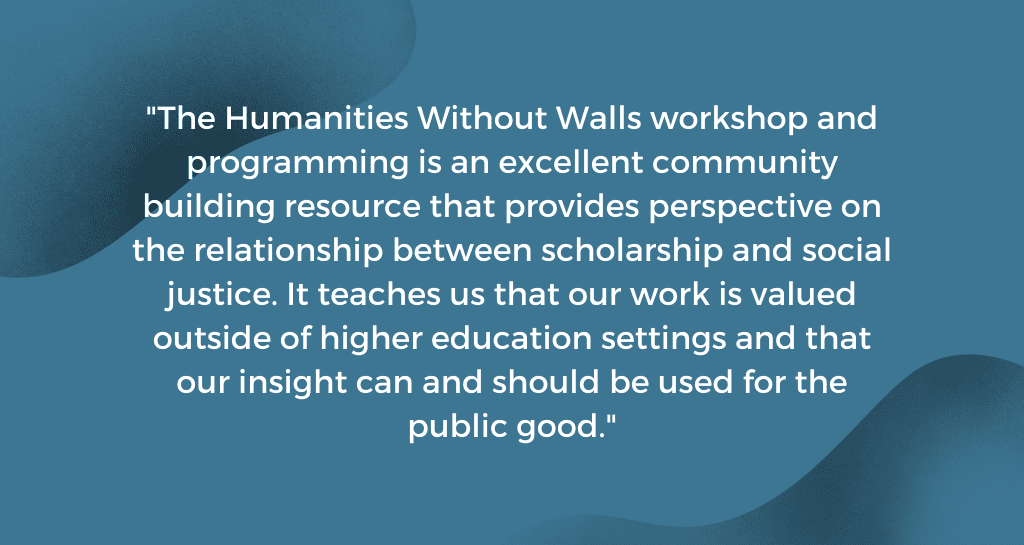
In the last four years, I have taken advantage of career exploration workshops, panels, and programs focused on professional diversity. The Humanities Without Walls workshop stands apart from other initiatives due to its balance of practical knowledge, such as résumé writing, and the philosophical approach to career diversity. As most career diversity initiatives serve as a backup plan for scholars pursuing tenure-track posts, this program understands and serves the needs of students that do not prioritize faculty positions. Humanities Without Walls addressed the concerns I had about entering the non-faculty job market as I reimagined the scope of graduate training and realized the opportunities available, career or otherwise, after completing my PhD.
Research interests often reveal humanities scholars’ personal beliefs and values. The Humanities Without Walls coordinators understand that it is important for us – as workshop attendees and humanities scholars in general – to reconcile our career paths with these personal beliefs not only as a way to provide for our material needs, but to pursue our interests in community and social justice. This workshop and other programming should serve as a model for career diversity initiatives that account for scholars’ creative, values-driven professional options and I look forward to working in continuous community with past, present, and future Humanities Without Walls workshop attendees.
The Humanities Without Walls Consortium recently released a call for applications for the Summer Workshop in 2022. For more information, see their website.
Brandon James Render is a PhD Candidate in History at the University of Texas at Austin. His research examines the relationship between race and higher education through the evolution of racial colorblindness in the twentieth century. He currently serves as the Mitchem Dissertation Fellow at Marquette University in Milwaukee, Wisconsin.
The views and opinions expressed in this article or video are those of the individual author(s) or presenter(s) and do not necessarily reflect the policy or views of the editors at Not Even Past, the UT Department of History, the University of Texas at Austin, or the UT System Board of Regents. Not Even Past is an online public history magazine rather than a peer-reviewed academic journal. While we make efforts to ensure that factual information in articles was obtained from reliable sources, Not Even Past is not responsible for any errors or omissions.
